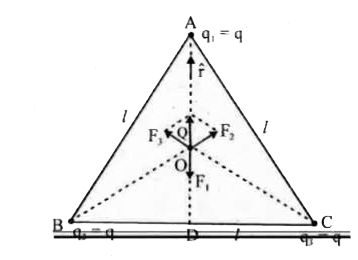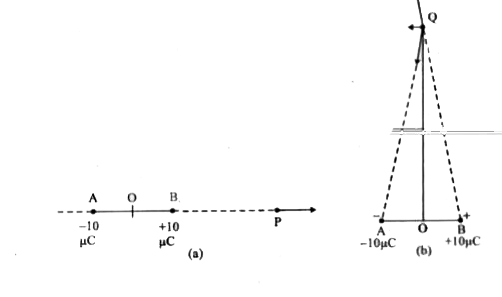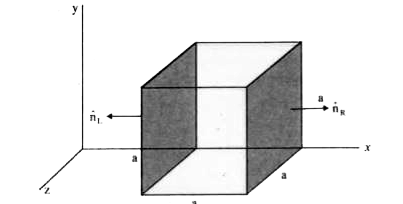Complete Solutions to EXAMPLE of chapter ELECTRIC CHARGES AND FIELDS of Class 12 book with complete answers and questions
| Class 12 | PHYSICS |
| Chapter | ELECTRIC CHARGES AND FIELDS |
| NCERT TAMIL | EXAMPLE |
| Number Of Questions | 13 |
| Academic Year | 2023-24 |
How can you charge a metal sphere negatively without touching it?
View SolutionIf `10^(9)` electrons move out of a body to another body every second, then the time required to get a total charge of 1 C on the other body is
View SolutionHow much positive and negative charge is there in a cup of water ?
View SolutionCoulomb's law for electrostatic force between two point charges and Newton's law for gravitational force between two stationary point masses, both have inverse square dependence on the distance between the charges`//`masees (a) compare the strength of these forces by determining the ratio of their maagnitudes (i) for an electron and as proton (ii) for two protons (b) estimate the accelerations for election and proton due to electrical force of their mutal attraction when they are 1 A apart.
View SolutionA charged metallic spere A is suspended by a nylon thread another charged metallic spere b held by an insulating centres is 10 cm c and d are then removed and b is brought closer to a to a what is txpectd repulsion of a on the basis of columb law sphere a and c speres b and d have indentical sizes ignore the sizes of a and b in comparision to the separation between their centres

View SolutionConsider three charges `q_1,q_2,q_3` each equal to q at the vertices of an equilateral triangle of side l. what is the force on a charges Q ( with the same sign as q) placed at the centroid of the triangle,as shown in figure?

View SolutionConsider three charges `q_1,q_2,q_3` each equal to q at the vertices of an equilateral triangle of side l. what is the force on a charges Q ( with the same sign as q) placed at the centroid of the triangle,as shown in figure?

View SolutionAn electron falls through distance of 1.5 cm in a uniforth electric field of magnitude `2.0xx 10 ^(4) NC^(-1) ` The direction of the field is reversed keeping its magnitude unchanged and a proton falls through the same distance compute the time of falls in each case . Contrast the situation with that of 'free fall under gravity'

View SolutionTwo point charges `q_(1)` and `q_(2)` of magnitude + `10^(-8)` c and `-10^(-8)` c respectively are placed 0.1 m apart calculate the electric field between the point charges
View SolutionTwo charges `pm 10 muC` are placed 5.0 mm apart. Determine the electric field at (a) a point P on the axis of the dipole 15 cm away from its centre O on the side of the positive charges, as shown in Fig. (a) and (b) be a point Q, 15 cm away from O on a line passing through O and normal to the axis of the dipole, as shown in Fig (b).

View SolutionThe electric field components in Figure are `E_(x)=alpha x^(1/2), E_y=E_(z)=0` in which `alpha=800 N//Cm^(1/2)`. Calculate (a) the flux through the cube, and (b) the charge within the cube. Assume that a=0.1m.

View SolutionAn electric field is uniform, and in the positive x-direction for positive x, and uniform with the same magnitude , but in the negative x-direction for negative x. It is given that
`vec(E) = 200 hat(i) N//C for x gt 0 and vec(E) = -200 hat(i) N//C` for x gt 0. A right circular cylinder of length 20 cm and raidus 5cm has its center at the origin and its axis along the x-axis so that one face is at `x = +10 cm` and the other is at `x = -10 cm`.
(a) What is the net outward flux through the side of the cylinder ? (b) What is the net outward flux through the cyclinder ? (c) what is net charge inside the cylinder ?
View SolutionAn early model for an atom consider it to have a positively charged point inucleus of charges ze surronded by a whole is neutral for this model what is the electric field at a distance r from the nucleus
View Solution
EXAMPLE questions and complete solutions for chapter ELECTRIC CHARGES AND FIELDS of FULL MARKS PHYSICS(TAMIL) of Class 12